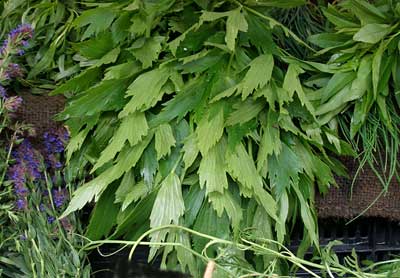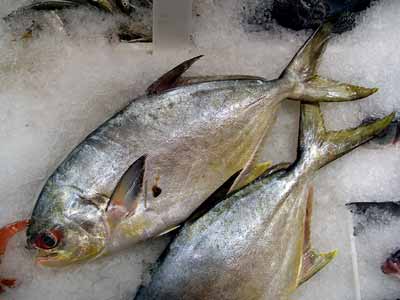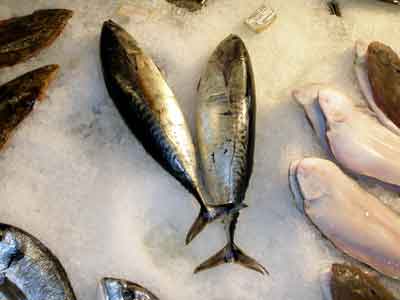
Lovage. A large unwieldy herb. Pick the stems off the leaves, tie them and hang them to dry for about 3 days. When crisp, crumble the leaves and store. Good in hotpots. Lovage seeds are used mainly in Indian cooking, and are from a plant of the caraway family. The greenish-brown seeds are a little larger than celery seeds and have a strong aroma of rather coarse thyme. Oregano can be substituted.

Pompano. A small, plump, oily marine fish with a yellow to greenish-blue back. It has a deeply forked tail. It is fished in the Mediterranean, Caribbean and off the south east of North America. With its firm flesh it is suitable for many types of preparation, stands up well to baking and is frequently cooked en papillote.
Transhumance. The seasonal movement of animals, accompanied by people, to find better grazing. This is most commonly to higher alpine pastures in summer and the movement back again in winter.
A type of comber fish. Painted comber or lettered perch, more common in the Mediterranean than in the Atlantic. A bony fish with very good flavour, useful for soups or cooked whole. The skin looks almost as if it has been written on.

Little tunny. The little tunny is a handsome fish with black scribble patterns on its back. It has a robust, torpedo-shaped body built for powerful swimming and it has no swim bladder. The mouth is large, the lower jaw slightly protruding past the upper jaw. The flesh of the little tuna is darker and stronger tasting than that of the other large tunas. It is marketed fresh, dried, canned, smoked, or frozen. It is often caught on hook and line near reefs.